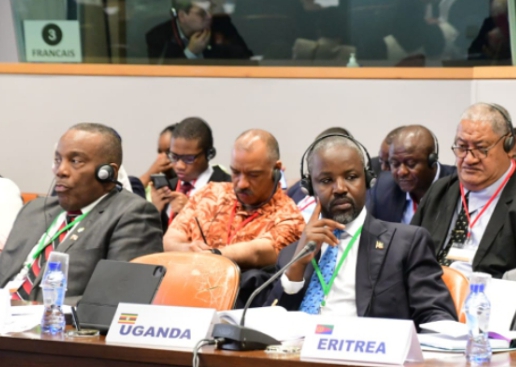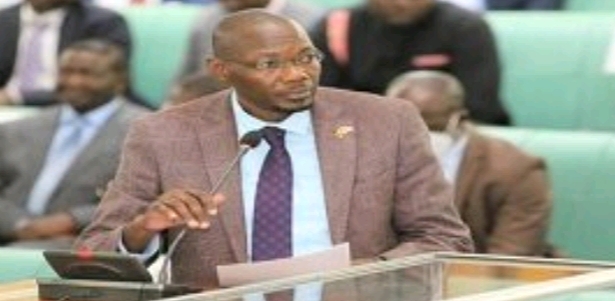The Deputy Speaker of Parliament Thomas Tayebwa has challenged world leaders, policymakers, and development partners to invest in young people to explore the benefits of population dividend.
Tayebwa was speaking at the 63rd Organization of African, Caribbean, and Pacific States (OACPS) – European Union Parliamentary Assembly underway in Brussels, Belgium. The assembly kicked off on June 19th with over 400 delegates tackling essential subjects including the conflict in Sudan, the DRC Congo security dilemma, pandemic strategy, Population matters, and economic treaties.
Tayebwa cited the productivity of Ugandan young people as the biggest challenge at the moment and asked the governments, policymakers, and development partners to prioritize this and get practical solutions, especially for the developing world.
During the discussions, the parliamentarians engaged with UNFPA on population issues focusing on the plight of young people in the face of escalating unemployment challenges among developing countries.
“We have the youngest population in the world, with over 70% below 30 years of age. Many of our young people are now educated but have no jobs. We must defuse the time bomb of youth unemployment by investing in skilling these youths to be job creators rather than job seekers. Investing more in technical education will enable developing countries to achieve this,” the Deputy Speaker said.
Tayebwa also said that increased investments in young people will equally have a ripple effect on productivity and, in turn, increase purchasing power, adding more to state coffers.
He also called upon intercontinental bodies like OACPS, the UN, and the entire international community to work with Uganda, the number one refugee-host country in Africa, to reduce conflicts.
“This is critical because the billions of dollars we are spending on conflicts and arms can be invested in ensuring that our people are safe and have a productive population,” the Deputy Speaker said.
Uganda has one of the youngest and most rapidly growing populations in the world. Figures by the National Population Council (NPC), a state agency that advises the government on population issues, show that Uganda has a population growth rate of 3.3 percent per annum, making it the third fastest-growing population in the world. The country’s population is projected to reach 75 million by 2040 from the current 45 million people.
Youths below the age of 30 make up more than 70 percent of the 45 million people, according to the NPC.
More than 70 percent of the youths are unemployed and this is what the Ugandan government is striving to reverse.
Population experts argue that investing in the youth age group will guarantee a healthy and skilled human resource.
According to the World Bank, if the increase in number of working-age individuals can be fully employed in productive activities, other things being equal, the level of average income per capita should increase as a result. The youth bulge will become a demographic dividend.
The Lwemiyaga County Member of Parliament, Theodore Ssekikubo said, there is a need to look into the current education system that is majorly producing job seekers than job creators.
“The basic and solid decision we have to make is to re-orient, make them more relevant and job creators. This has to be aligned with our budget. At the end of the day, these are the youth that will be driving,” Ssekikubo said.
Sheema Municipality MP (NRM) Dickson Kateshumbwa argued that sustained economic growth is critical in creating opportunities for the youthful population that is entering the labor market.
He said the government needs to invest in growth areas that promote innovations among the youth.
“In a way, we are a victim of our own successes because of the free Universal Primary Education and secondary school and many people who have graduated but they don’t have jobs. As a country, we have to invest in the youths to be able to create jobs in areas of technology and being able to harness ICT skills and vocational skills.
He said parliament should take the lead role in advocating for increased investments in human capital development focusing on the youth to enable young people to get skills.
The United Nations Population Fund argues that governments should continue to invest in the health of the population. The population agency says that the healthiness of the country’s labor force determines the level of productivity.
It argues that for instance as children’s health and survival rates improve, family demand for more children declines. Smaller family sizes improve maternal health, which further improves child health, as well as increases women’s labor force participation, hence contributing to economic growth.
![]()




























